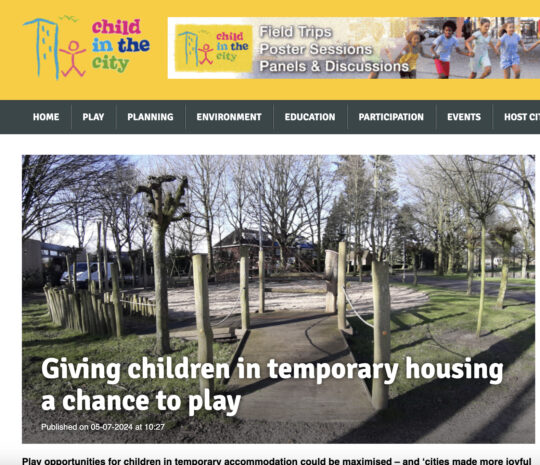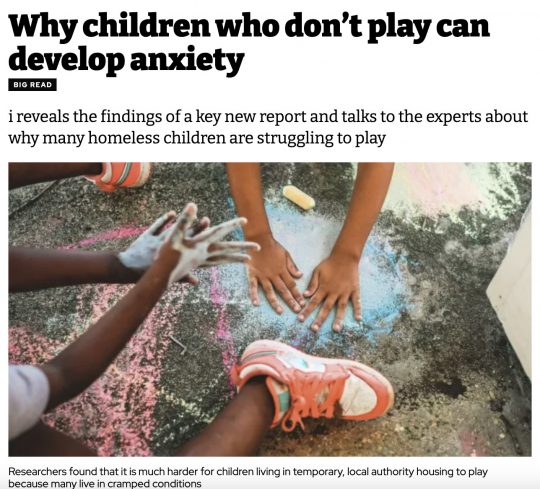
United Kingdom
A Place to Play: Children’s Play Needs in England’s Temporary Housing
- Status
- Completed Research
- Research Year
- 2022-23
The UK’s long-running housing crisis has recently accelerated into a new and damaging phase, compounded by rising costs of living. Social safety nets are straining to match people’s growing need for affordable, decent accommodation. Within England, there are now 120,000 homeless children living in temporary housing. These children are at significant risk of hampered development. This report uses an interdisciplinary approach to exploring the challenges that families living in temporary accommodation face, particularly regarding ensuring time, resources, and space for their children to play. The report sees leisure as a pillar for healthy social and psychological development. Using innovative methodologies, its authors provide best practices to translate community insights into policy action. This case study builds upon existing evidence from the UK’s Champions Project, which examined the impact of COVID-19 lockdowns on under-5s in temporary housing.
Researchers
Mentors
-

University College London
Monica Lakhanpaul
Professor of Integrated Community Child Health at UCL Great Ormond Street Institute of Child Health and Pro Vice Provost for South Asia at University College London
-

University College London
Celine Lewis
Senior Research Fellow in Genomics; NIHR Advanced Fellow; Population, Policy and Practice Department at UCL Great Ormond Street Institute of Child Health.





